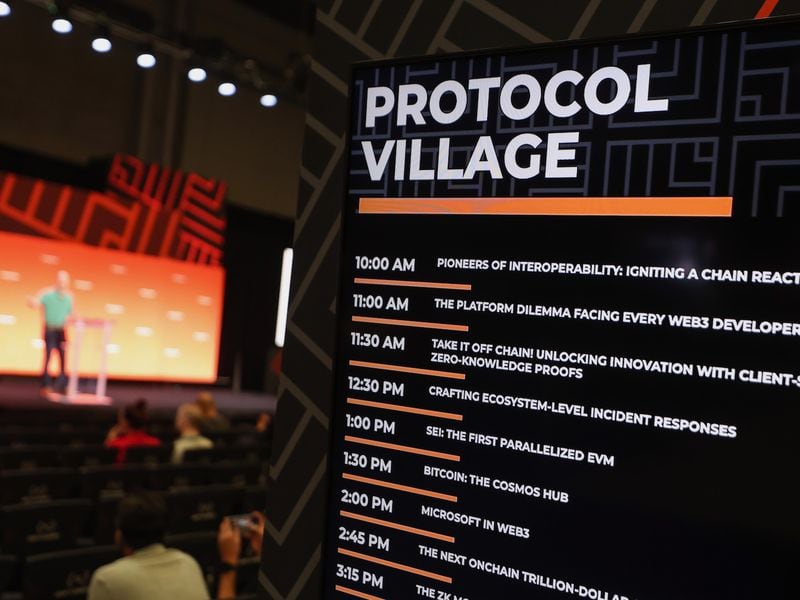Civic, developer of a tokenized identity solution on the verifiable web, has partnered with Rentality, described as the first Web3 car rental platform, “to securely verify drivers’ licenses and enforce age minimums on the Base network.” According to the team: “Using Civic’s ID Verification Pass, users can verify licenses virtually, streamlining the car rental process. This solution enhances security, trust and compliance in car rentals and peer-to-peer marketplaces by eliminating the need for physical verification and reducing friction in the transaction, setting a new standard for secure rentals.”
Chromia, a blockchain ecosystem that aims to avoid network congestion partly by giving every decentralized app (dapp) its own cluster of nodes and computational resources, announced the upcoming “Asgard” mainnet upgrade on the TOKEN2049 stage, along with a $20 million Data and AI Ecosystem Fund. According to the team: “The fund is aimed at supporting data-intensive projects and AI-enabled applications. Asgard, scheduled for Q4 2024, will introduce ‘Extensions’ – customized chains designed to bring new functionalities to the platform such as oracles, computation for AI models, support for data availability and ZK proofs.”
ChainOpera AI, a decentralized and open AI platform, has emerged from stealth, according to the team. The project is “launching its decentralized platform and app marketplace that enables developers to build, train, and deploy AI applications using fully decentralized resources. While existing decentralized AI solutions focus on infrastructure like GPUs, they still rely on centralized providers like AWS. ChainOpera fills this gap by delivering enterprise-grade AI models and decentralized infrastructure, providing cost-effective GPU access, community-sourced AI training, and a marketplace for apps built on its decentralized infrastructure.”
Oasis Network, designed to be a scalable, privacy-first and versatile layer-1 blockchain, has launched liquid staking in partnership with Accumulated Finance, according to the team: “ROSE token holders can now stake their assets while keeping them liquid for trading or use in DeFi applications. This new feature, powered by the Oasis Sapphire ecosystem, provides stROSE, a liquid staking token, allowing users to earn rewards and engage with decentralized apps. Improvements include boosted staking APR and a reduced unbonding period.” Users no longer have a 14-day unbonding period when converting staked ROSE to unstaked ROSE, a blog post reads.
MatrixPort, a digital asset services platform, and exSat, a docking layer for Bitcoin scalability, plan to work together to introduce nBTC, a wrapped bitcoin alternative, “to improve liquidity and enable diverse financial applications such as staking and lending,” according to the team: MatrixPort “will leverage its technology and user base, while exSat focuses on indexing UTXO data. The strategic partnership is set to position exSat as the biggest among Bitcoin L2s, with ~$400 million at launch.”
Protocol Village is a regular feature of The Protocol, our weekly newsletter exploring the tech behind crypto, one block at a time. Sign up here to get it in your inbox every Wednesday. Project teams can submit updates here. For previous versions of Protocol Village, please go here.

